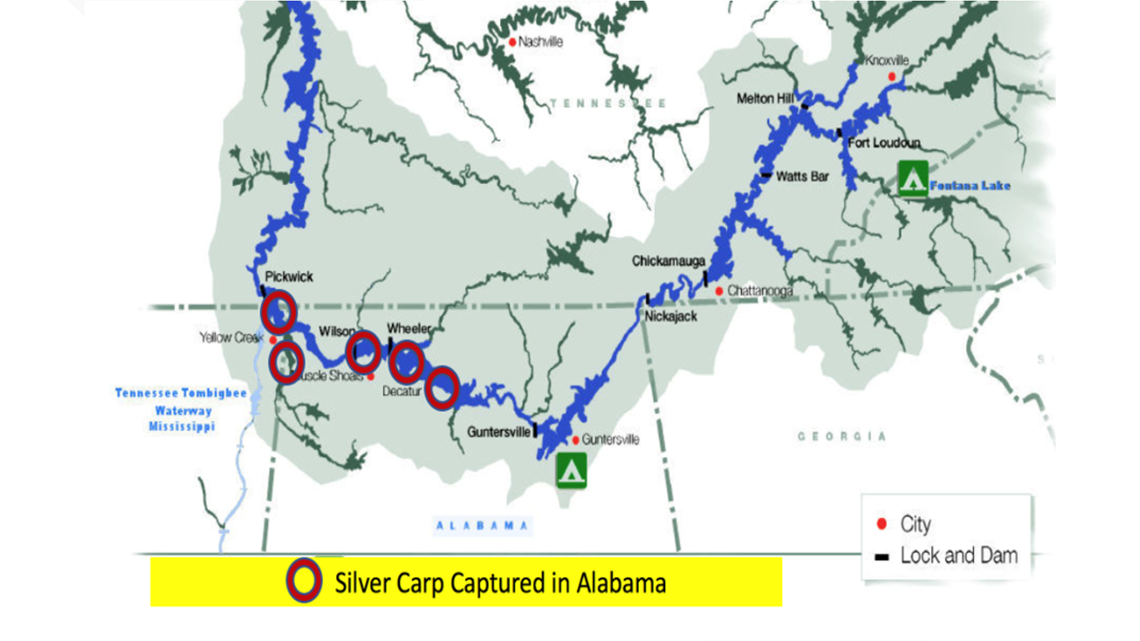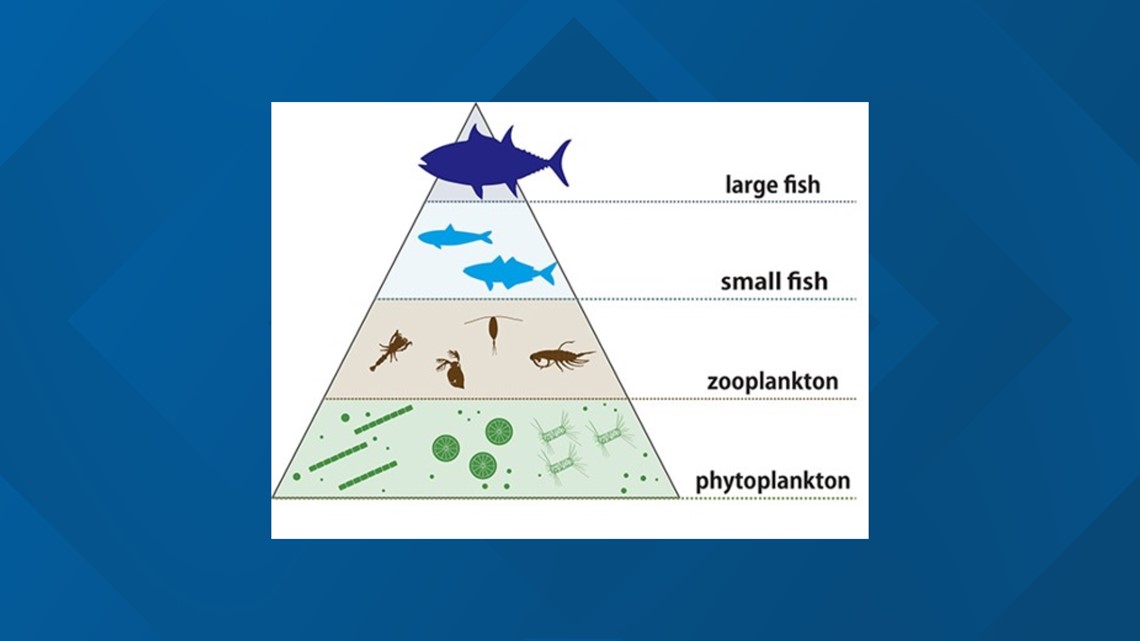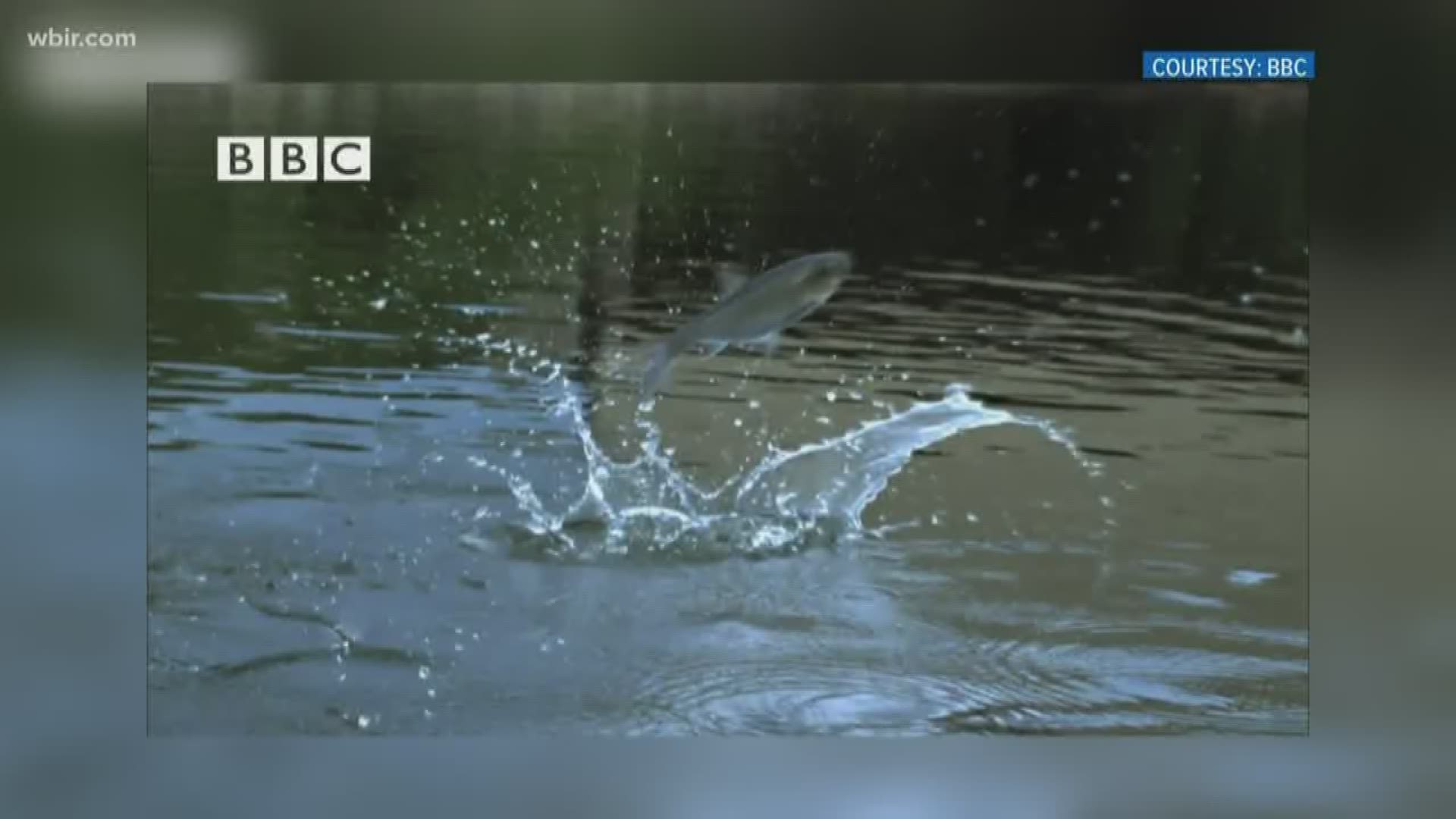ROANE COUNTY, Tenn. — This is one fight you wouldn't win.
"lt's a thirty pound projectile hitting you in the face," Fisheries Biologist Dr. Timothy Joseph said. "They have literally broken jaws."
Joseph knows the silver carp is a formidable opponent.
"They rapidly take over a lake," Joseph said. "The bad thing is, not only do they take over the ecology and destroy that, they have a unique ability to jump out of the water whenever they're afraid."
A female silver carp can lay up to five million eggs at once.
That makes it easy to destroy lake environments and economies quickly.
Joseph said they're coming for East Tennessee.
"They're in Wheeler Reservoir," Joseph said. "That's in Alabama. The next one is Guntersville. If they get into Guntersville, then they're going to get up into Chickamauga."


And from Chickamauga, near Chattanooga, they would head to the big lakes here in East Tennessee.
The fish are as dangerous to the environment as they are to humans.
Joseph said they rapidly eat the bottom part of the food chain in a lake--the phytoplankton and zooplankton.
Phytoplankton include algae, which use photosynthesis to produce energy.
Joseph said the silver carp limit the food for other fish, which can hurt their population.


Joseph recently took his concerns to the Kingston City Council.
The council passed a resolution asking state and federal lawmakers for money to find a solution.
For Joseph, the solution is installing nearly $20 million electrical barriers that shock the fish and temporarily disable them.
"There's a fallacy that you could be electrocuted," Joseph said. "Impossible...It would be disturbing, but you could swim right through it. People have swum right through these."
He estimates the barriers would prevent an economic loss of about $1.3 billion at the five main reservoirs in East Tennessee.
That includes losses from marinas, the value of lakefront properties going down and the impact on sport fishing.
"It'll be major," Joseph said. "You'll have businesses literally going out of business."
It's an effort to fight against a tough opponent--an invasive species.
"No matter how many presentations I give, I can't do it by myself," Joseph said. "It's going to take people who have political clout."
Three other invasive Asian carp species --black carp, grass carp, and bighead carp --were found in the Mississippi River in abundant numbers before they migrated into Tennessee waters. The TWRA is concerned all four species are posing a threat to Tennessee's native fish and wildlife by out-competing them on limited plankton resources.
Tennessee is one of 28 states working to lobby for additional carp management funds. In the meantime, the TWRA said they are working with the U.S. Fish and Wildlife Service, Tennessee Valley Authority and the U.S. Army Corps of Engineers to make best use of limited federal funds to control carp.

